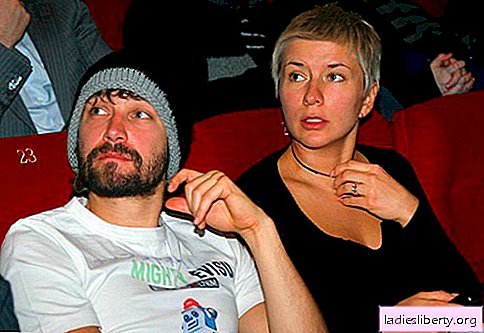
Holidays April 16
Constitution Day in Bulgaria
The public holiday is timed to the adoption on April 16, 1879 of the first Bulgarian Constitution, which was drawn up on the basis of the Belgian legal act. According to its content, Bulgaria officially adopted the status of a constitutional monarchy, and also had legislative and parliamentary powers. Over time, in socialist Bulgaria, amendments to the document succeeded each other at regular intervals. Since 1947, the "Dimitrov" Constitution has been in force in the republic, and from "Zhivkovskaya" since 1971, and at present, the Constitution adopted in 1991 is in force in Bulgaria.
Today, Bulgaria is a parliamentary republic. Its parliament has more than two hundred deputies elected by the people. According to the new regulatory act, the head of Bulgaria is the president (his elections are held every five years), and the state power is divided into three branches: executive, legislative and judicial. This day in the republic is an official day off. It should be noted that on April 16, Lawyer Day is also celebrated in Bulgaria.
Police Workers Day in Armenia
Every year on April 16, police in Armenia celebrate a professional holiday, approved by the authorities in 2001. In June 2006, the Law on Police of Armenia underwent several changes. According to the amendments, the following tasks were assigned to the police:
1) prevention and suppression of crimes, as well as administrative offenses;
2) ensuring the safety of the population;
3) the protection of public order;
4) conducting a preliminary investigation;
5) disclosure of crimes;
6) protection of any form of ownership;
7) protection of human rights and freedoms.
The main duty of the police of any state is to protect the health, life, dignity, legitimate interests of its citizens from criminal attacks. In the morning hours of April 16, many policemen in Armenia consider it a holy duty to lay flowers at the monument to the Unknown Soldier, which towers in Victory Park in Yerevan. The best employees today are awarded with diplomas and other honorary awards.
April 16th in the folk calendar
Water treat, Nikita Vodopol
On April 16, people commemorate the memory of St. Nikita the Confessor, hegumen of the Medica monastery, who lived at the turn of the 8th-9th centuries.
In Russia, it was noticed that from Nikita the last snow began to melt especially intensively, and "crazy" ice floes were already rushing in the rivers. The floods brought a lot of inconvenience to the peasants. And if the river capitally "diverges", then by all means, everything that is in its district will be swept away in its path. According to legend, on April 16, the last watermen are released from hibernation. To avoid large spills, people tried to appease him with various treats. Some served bread, some - porridge, vegetables or milk. Vegetable oil was also poured into the water. And the most courageous sacrificed to him an old unusable horse, which was fed the day before the sacrifice, combed and tied a large beautiful ribbon to her mane. Especially trying to please the water fishermen, so that he did not skimp on the catch. However, if the old man refused gifts, then the year will turn out to be not very successful in terms of fishing.
Historical events of April 16
April 16, 1618 - The English scientist William Harvey outlined a new theory of the circulatory system in the warm-blooded organism, which was later confirmed in practice
On that day, a famous scientist and doctor announced the development of a new theory of the circulatory system in humans and warm-blooded animals. After conducting experiments and experiments, he made an unexpected conclusion that human blood moves in two circles: large and small. Ten years later, the scientist published a large publication detailing his theory. Harvey’s works turned all ideas about the structure of the circulatory system up to that point based on the conclusions of the ancient healer Claudius Galen, who believed that not one blood but two completely different fluids in the body flow.
April 16, 1797 - The coronation of Paul the First and the publication of his Decree on the Restriction of the Feminine
On the day of his coronation, Emperor Paul the First issued a Decree on the weakening of corvee. This reform became one of the most important in the Pavlovsk period. According to the new legislative act, landowners were strictly forbidden to force peasants to work on Sundays. Moreover, now work on the land of the landowner could be carried out no more than three times a week. Many landowners, of course, were unhappy with the law and were in no hurry to follow the new rules. And let Pavel’s Decree on the weakening of corvee bears rather of a recommendatory nature, but it was he who laid the foundation for a shift to improve peasant existence.
April 16, 1934 - The Central Executive Committee of the USSR established a new honorary title "Hero of the Soviet Union"
In 1934, the CEC decided to establish the title of "Hero of the Soviet Union", which was the highest award for particularly excellent services to the state or the achievement of a heroic feat. The first “Heroes” to receive an honorary title were seven pilots who, risking their own lives, evacuated the expedition from the ice camp. Initially, badges of distinction to the title were not provided, people were given special letters and the Order of Lenin. The first Hero of the Soviet Union medal was established a little later, in 1939. In the same year, the Golden Star was approved by decree of the Presidium of the Supreme Council. Thus, they became especially distinguished in front of their homeland: a special diploma, the Order of Lenin and the highest medal "Golden Star". The overwhelming majority of heroes awarded (about 90% of the total number awarded) are participants in the Great Patriotic War. After the collapse of the USSR, the honorary title was reissued to "Hero of the Russian Federation".
Born April 16
- Charles Chaplin (1889-1977) - American actor, director, screenwriter and composer. The creator of the famous image in world cinema is Charlie's tramp. The character he created was listed in the Movie Book. In 1914, he began to act as a screenwriter and director, and since 1918, Chaplin discovered new facets in himself - he had a burning desire to write music, and he did it well.
- Sergey Nikonenko (born in 1941) - one of the most sought-after Russian film actors. The number of films with the participation of Sergei Nikonenko has long exceeded one hundred, and in his "director's baggage" is twelve films. The very first successful work of Nikonenko was the role in the film "People and Animals".
- Pavel Schilling(1786-1837) - Russian scientist and inventor, famous orientalist. Creator of lithography for printing geographical maps. One of Schilling's hobbies was oriental studies. During a trip to Eastern Siberia, he managed to collect a valuable collection of Mongolian-Tibetan literary monuments. However, the scientist went down in history thanks to his merits in the field of electricity. Long trials and experiments led Schilling to the invention of the keyboard telegraph apparatus in 1832.
April 16th
Martin, Nikita, Julia, Ksenia, Maria, Albina, Benedict (Benedict), Fedosya, Bogdan.











